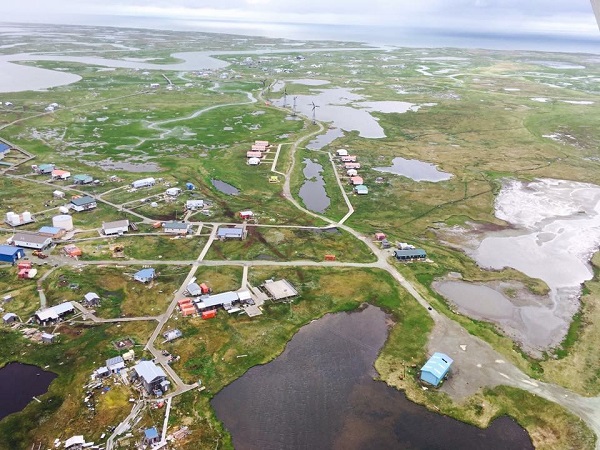The Alaska Native Tribal Health Consortium (ANTHC) Center for Environmentally Threatened Communities, Alaska Division of Community & Regional Affairs (DCRA) Risk Map Program, and Alaska Division of Geological & Geophysical Surveys (DGGS) Coastal Hazards Program have solidified their collaboration to work with Alaska communities facing coastal flood and erosion hazards with a project titled "Building Capacity and Conducting Coastal Risk Assessments in Remote Alaska Native Communities." The project is funded by the National Fish and Wildlife Foundation with match from the State of Alaska, ANTHC, and the Denali Commission.
This project aims to boost resilience in communities facing flood and erosion hazards by taking a stepwise approach to working with community leaders through collection of baseline data and creation of maps that quantify vulnerability, assistance with developing resilience strategies and choosing mitigation solutions, building capacity to develop shovel-ready projects, and establishing community-led monitoring programs to evaluate effectiveness.
Award Announcement: https://www.nfwf.org/sites/default/files/2020-11/national-coastal-resilience-fund-2020-grant-slate.pdf
Update November 2020: The National Fish and Wildlife Foundation announced the results of the 2020 National Coastal Resilience Fund competition November 16, 2020. The Alaska Coastal Resilience Partnership team is currently establishing the program framework and setting up communications with project collaborators.

Kwigillingok, Alaska 2017. One of the 44 targeted Alaska communities facing flood and erosion hazards.
Informed coastal planning, facilitated by access to reliable decision-making tools, will help protect life, infrastructure, and the environment. DGGS seeks to close communication gaps, convert available data into a useful format, and educate the public about coastal processes, all to support decision-making and minimize losses due to new or exacerbated hazards in the coastal environment.